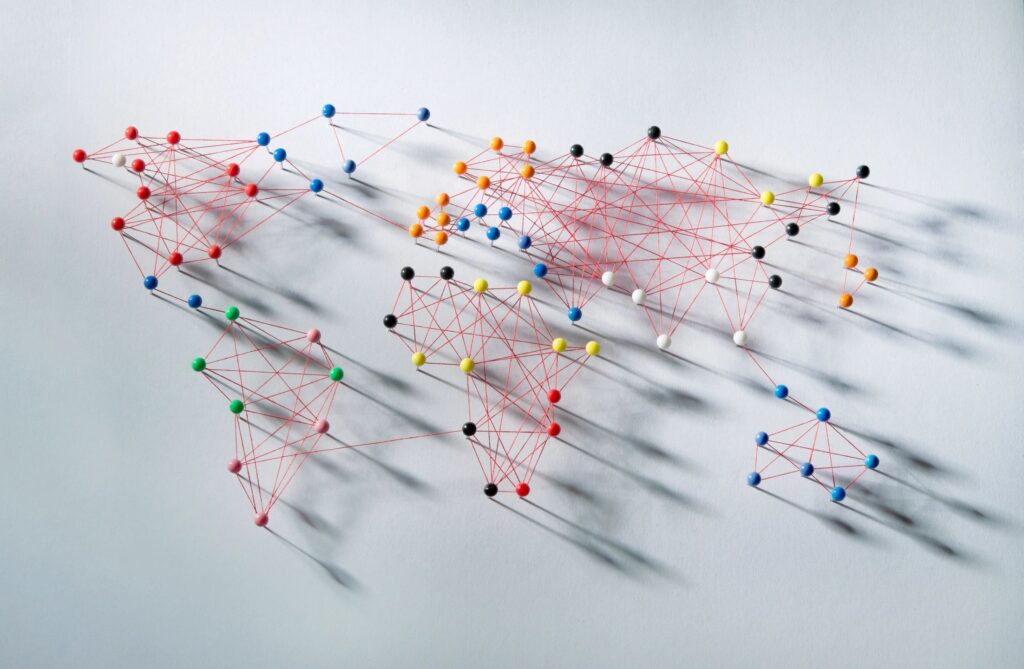
America started out as a country of immigrants. In my opinion, four hundred years, it remains the same.
The first colony was founded at Jamestown, Virginia is 1607 by people who left England and traveled to America. The atrocities committed by those first settlers with respect to the native population residing in the continent of North America is a topic for another column.
The people who became known as Americans –immigrated from England.
It was the decedents of those first English settlers, along with everyone who followed them, that founded the United States of America in 1776. It’s true: Mr. Washington’s great-grandfather was born in Essex, England; Benjamin Franklin’s father was born in England.
Not Much Difference Over Time
Statistics on immigration indicate that rates have not changed much over time. According to the Migration Policy Institute, in 1860, 10% of the United States population was foreign born. In 1970, that percentage dropped to 5% In 2020, it has started to close to 15%.
What accounts for that nearly 10% increase in 50 years? Changes in the United States’ immigration policy, for one thing. The Immigration and Nationality Act, which took effect in 1965, replaced the discriminatory quota system that had been in place since 1924.
The United States has more immigrants than any other country. Some of those include refugees and individuals seeking asylum. That means America is a country that provides protection to people who fear persecution or harm. That strikes me as an honorable public policy that upholds principles of human dignity. The United States is not alone in offering that protection. The notion of asylum protections was born out of the human tragedies of World War II and the Holocaust. Interestingly, the world’s refugees migrate to only a small number of countries in Europe and the United States is not listed in the top 10 global host countries.
When someone migrates, or permanently changes the country they live in, their citizenship status changes. The Department of Homeland Security has a long list of definitions that can be applied to human beings: immigrant, naturalized citizen, undocumented, migrant, unaccompanied minor.
While the terms used to describe those newly arrived in America may have evolved, the process has not changed in four-hundred years. And everyday American’s are used to this. We ask each other questions like, “Where is your family from?” or “Do you still have relatives in (insert country name)?”.
Our interpersonal relationships also recognize the uniqueness of individuals based on where they “grew up”. On this point, the data scientists seem to have more of a challenge than the average person in defining the differences. There is some confusion about what “first generation” and “second generation” American means. But the fact that we describe the population of people living in America in these terms underscores the fact that we recognize many people who live here have a connection with other countries in the world.
Data from the US Census indicates 281.1 million Americans were born in the United States. The other 40 million were born somewhere else but have American citizenship. Undocumented immigrants represent only 3% of the total US population.
All this leads me to conceptualize America as a nation that is comprised of people whose definition of self is comprised of two elements: where their families came from and where they currently live.
People, Not Numbers
While it’s helpful to understand immigration data, and the policies behind it, exclusively focusing on numbers diverts our attention away from the human stories behind each data point. There are a wide range of factors that influence a person’s decision to leave their homeland. On the positive side we have things like the desire to pursue an education or find better employment opportunities. On the negative side, we have factors like the inability to tolerate oppressive political regimes, conflict and the inability to meet one’s basic needs.
In October of 2022, the New York Times reported on the record number of Venezuelans attempting to reach the US border. Since 2014, over 6 million Venezuelans have left their country. The reasons: death threats, disease, poverty, lack of access to food, medicine, and essential services. By some accounts, President Nicolas Maduro is worse than his predecessor Hugo Chavez but both destroyed the richest, most stable democracy in Latin America and the citizens of Venezuela have been suffering for the last two decades.
Venezuelans are fleeing their country because the democratic presidential republic government they should have is really run by a dictator. Their exodus is a forced displacement; immigrating is the only way to avoid a sure demise.
But immigrating does not guarantee survival. As the Time’s story highlights, the conditions Venezuelan immigrants face as they travel to American borders is wrought with danger. Crossing the Darien Gap consists of more than 60 miles of rain forest, steep mountains and swamps. It’s one of the world’s most dangerous jungles. How bad must life be if this option seems better than staying where you are?
Venezuela’s not the only country whose citizens leave because starting over somewhere else is safer than staying put. Over 2.6 million Afghani’s were displaced when the United States pulled out of the country in August 2021. At least 76,000 Afghani immigrants have been settled in the United States.
At least 12 million Ukrainians have fled their homes since the war with Russia began. Around 5 million migrated to other European countries. Shortly after the war began, President Biden agreed to provide 100,000 Ukrainians a safe haven. By September of 2022, the US government had received 124,000 applications filed by Americans offering to sponsor Ukrainians seeking asylum.
Unfortunately, Venezuela, Afghanistan and Ukraine are not the only countries where citizens are being forcibly displaced. Citizens in many of the world’s 195 countries also face significant threats to their wellbeing due to violence, oppressive political regimes, poverty, and human rights abuses.
No human being deserves to live in constant fear for their life. The inability to access medical care, food, housing or other basic needs causes tremendous physical psychological harm to individual and degrades the fabric of society.
So, while life in the United States may be better than it is in some countries, we should recognize that life is not perfect here either. American society is plagued by structural racism and hate crimes are on the rise. In America 500,000 individuals are homeless, nearly 40 million people live below the official poverty threshold, and nearly 6 million people are unemployed. The United States ranks 20th in the ranking of countries where people die from gun fatalities and we incarcerate more people than any country in the world
It’s Not Zero Sum
Surveys find that a large majority of American’s support Ukraine in their efforts to resist Russian aggression, which has implications for global geopolitical stability. There was likewise broad support for assisting Afghan refugees resettle in the United States. A Pew Research report found that 72% of Americans support refugee resettlement in general.
So why is there so much disagreement about immigration in the United States?
Those who seek to limit immigration in the United States have advanced the same criticisms for centuries: immigrants take jobs, create government debt, abuse government benefits, perpetuate crimes and don’t pay taxes. Those claims don’t align with reality.
A study in Texas by the Cato Institute found: “The general pattern of native‐born Americans having the highest criminal conviction rates followed by illegal immigrants and then with legal immigrants having the lowest holds for all of other specific types of crimes such as violent crimes, property crimes, homicide, and sex crimes.” Over half of the total immigrant population in the United States are naturalized citizens, pay taxes, and are more likely to be entrepreneurs. A recent report from the Congressional Joint Economic Committee declared the “immigrant workers are vital to the US economy”.
There are also thousands of immigrants who have made significant and widely-recognized contributions to America and the world: scientist Albert Einstein, American Ambassador to the United Nations Madeline Albright, the creator of Chobani Yoghurt Hamdi Ulukaya, the founder of Google Sergey Brin, and Arianna Huffington who launched Huffington Post. There are millions of other examples of important contributions that immigrants make to our society and our world. That they are not always as well-known as the work of high-profile individuals does not make them any less important.
Consider Your Own Family Tree
I recognize that some readers may disagree with my belief that the country we know today as America is a result of centuries of immigration. So far, I’ve cited historical facts and data to support my position. But my own family story is one of immigration.
My great grandfather was born in Italy. He came to America in the early 1910s – alone on a boat that departed from the south of Italy. His mother and father came later. Same is true of the woman he married. My great-grandmother was born in Italy and immigrated with her family to the United States a few years after my great-grandfather. My great grandfather served in World War I. His son, my grandfather, is a first generation American.
No one would look at me and say I’m the descendent of an immigrant. But you know what, I am and I’m proud of that fact. And I also know that if people classified me as an immigrant, they would likely treat me differently.
Data suggests there are many American stories that are just like my family’s story. Since the 1900s, first- and second-generation Americans represent 13% and 20% of the population respectively.
A Welcoming Posture
One step toward remediating the humanitarian crisis that has come to define the refugee and immigrant experience in the United States would be to quickly update immigration policies in order to align government programs with our global reality.
But beyond policies, I believe our shared humanity should move us to advocate for refugee and immigration policies that uphold human dignity and protect human rights. If we can’t reach that aspirational goal, we should at least ensure our policies do no harm.
Given that so many Americans are really, first, second, or third -generation – it shouldn’t be hard for us to recognize that the hardships endured by those who arrive in American today are similar to those experienced by our grandparents or great-grandparents.
Citizenship status is not what unifies the people of a nation. Our collective humanity and shared values are what render us more the same than different – irrespective of the country in which we were born.
When one of us suffers, we all suffer.
